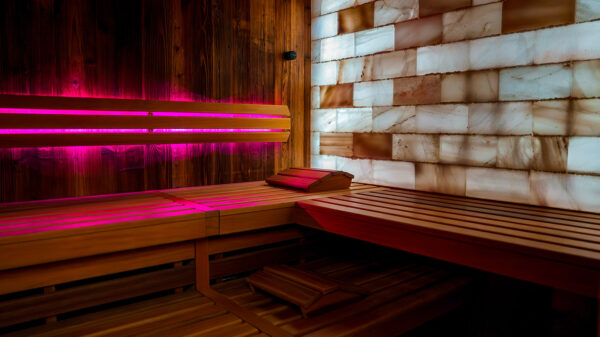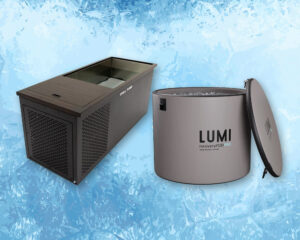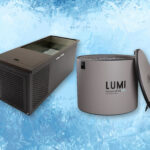Saunas, steam rooms, hot and cold therapy is becoming more associated with it’s studied health benefits and mood boosting benefits. Rheumatoid arthritis (RA) is a chronic autoimmune condition that causes joint inflammation, pain, and stiffness. People with RA are often on the lookout for therapies that can help manage these symptoms alongside their medical treatments. One potential increasingly popular approach is sauna therapy, particularly due to its potential benefits in reducing inflammation and improving circulation. But can regular sauna sessions truly support those with rheumatoid arthritis? This article explores the research behind sauna therapy as a complementary approach to managing RA symptoms.
Understanding Rheumatoid Arthritis and Inflammation
Rheumatoid arthritis is characterised by the immune system mistakenly attacking the body’s own joints, resulting in pain, swelling, and, in more severe cases, joint damage. Traditional treatments for RA typically include medication to reduce inflammation and pain, physical therapy, and lifestyle changes. However, many people with RA are now turning to sauna therapy to find relief from their symptoms, as it is believed to help reduce inflammation and support relaxation and well-being.
How Sauna Therapy Works
Saunas generate heat that raises the body’s core temperature, causing sweating and vasodilation (the widening of blood vessels). This process has various potential benefits, including enhanced circulation and the relaxation of muscles. There are different types of saunas, with traditional saunas using high temperatures and dry heat, while infrared saunas use lower temperatures with light to penetrate deeper into the skin.
The Potential Benefits of Sauna Therapy for Rheumatoid Arthritis
While sauna therapy may not treat the underlying causes of RA, research suggests it may offer symptomatic relief in several ways:
1. Reduced Inflammation and Pain Relief
One of the core benefits of sauna therapy is its potential to reduce inflammation, a major factor in RA. The heat from a sauna can stimulate blood flow, which helps carry oxygen and nutrients to inflamed tissues, potentially easing pain and swelling.
- Study Support: A study published in the Journal of Clinical Rheumatology found that regular sauna use was associated with reduced inflammatory markers in patients with chronic conditions, suggesting that sauna therapy may help manage inflammation-related symptoms in RA.
2. Enhanced Circulation
Better circulation is beneficial for people with RA, as it helps supply affected joints with oxygen and essential nutrients. The heat from a sauna causes blood vessels to expand, improving blood flow and potentially reducing pain and stiffness. Improved circulation can also support the removal of metabolic waste from joints, aiding the healing process.
- Study Support: Research from Complementary Therapies in Medicine indicates that sauna therapy increases blood flow, which may alleviate symptoms in patients with rheumatoid arthritis by reducing joint stiffness and enhancing flexibility (source).
3. Muscle Relaxation and Joint Mobility
People with RA often experience muscle tension around inflamed joints, contributing to stiffness and discomfort. The warmth of a sauna can help relax muscles and relieve tension, improving joint mobility and reducing the discomfort of everyday movements.
- Supporting Study: A study in the International Journal of Hyperthermia found that heat therapy could improve muscle flexibility and reduce joint stiffness, helping people with arthritis enjoy improved mobility.
4. Stress Reduction and Mental Well-being
Living with a chronic illness like RA can be mentally taxing, with stress often exacerbating physical symptoms. Sauna therapy offers a relaxing environment that can help reduce stress and anxiety, positively impacting overall well-being. The heat encourages the release of endorphins, chemicals in the brain that act as natural painkillers and mood elevators.
- Supporting Study: Research published in Psychosomatic Medicine shows that regular sauna sessions can reduce levels of cortisol, a stress hormone, while promoting relaxation and improving mental health outcomes for those managing chronic pain.
5. Improved Sleep Quality
Sleep disturbances are common in people with RA, often due to pain or discomfort. Sauna therapy can promote relaxation and prepare the body for better sleep. Some people report feeling more refreshed and rested after incorporating sauna sessions into their routine.
- Supporting Study: A study in Sleep Medicine Reviews suggests that heat exposure can improve sleep quality by regulating body temperature and promoting relaxation, both of which are beneficial for those with RA experiencing sleep issues (source).
Types of Sauna Therapy Suitable for RA
- Traditional Finnish Sauna: High temperatures and dry heat, which may provide deep relaxation and pain relief for those able to tolerate the heat.
- Infrared Sauna: Lower temperatures make it more accessible for those sensitive to intense heat. Infrared saunas are believed to penetrate deeper into muscles and joints, offering potential relief for people with RA.
- Steam Rooms: Moist heat can be gentler on the respiratory system and is sometimes preferred by those who find dry heat uncomfortable.
Guidelines for Using Sauna Therapy Safely with RA
If you have rheumatoid arthritis, consult your healthcare provider before starting sauna therapy. Here are some general guidelines to keep in mind:
- Start Slowly: Begin with short sessions (5-10 minutes) and gradually increase as your body adjusts to the heat.
- Stay Hydrated: Saunas can lead to fluid loss through sweating, so drink plenty of water before and after your session to stay hydrated.
- Monitor Temperature: Avoid extreme heat, as very high temperatures may increase inflammation or discomfort. Infrared saunas with lower temperatures may be a more suitable option for RA patients.
- Listen to Your Body: If you experience any unusual pain, dizziness, or discomfort, end your session immediately and consult a healthcare provider.
Limitations and Considerations
While sauna therapy shows promise as a complementary treatment for RA, it should not replace medical treatments or prescribed medications. The evidence, though supportive, is still emerging, and further research is needed to fully understand the impact of sauna use on RA symptoms over time.
Conclusion
Sauna therapy offers a natural, non-invasive way to potentially relieve some symptoms associated with rheumatoid arthritis, including inflammation, muscle tension, and joint stiffness. With regular sessions, people with RA may experience enhanced mobility, reduced pain, and improved mental well-being, adding valuable support to their overall treatment plan. For those looking for complementary ways to manage RA symptoms, sauna therapy can be a beneficial addition—one that brings warmth, relief, and relaxation into their wellness routine.
As always, consult your healthcare provider before beginning any new treatment. While sauna therapy may not cure RA, it has the potential to offer relief and improve quality of life for those who embrace it.












